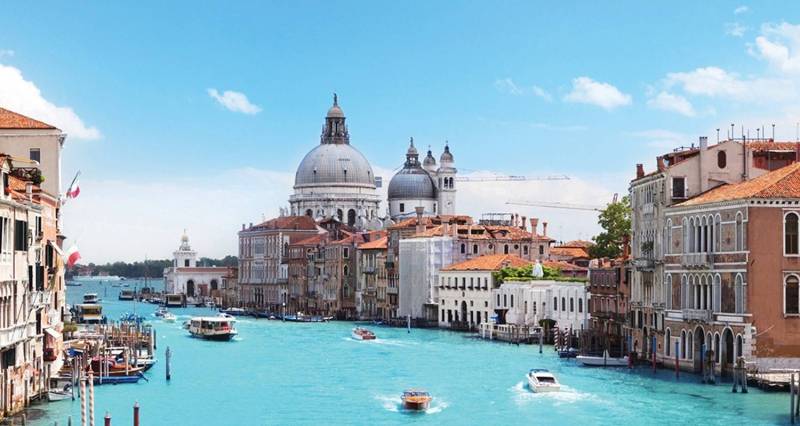Europe seeks to save the summer holidays

Stay tuned with 24 News HD Android App

The EU on Wednesday set out plans for a phased restart of travel this summer, hoping to save millions of tourism jobs threatened by the coronavirus pandemic across Europe, the world's top holiday destination.
Travel restrictions to combat the virus have already had a devastating impact on the sector, with airlines around the continent forced to shed tens of thousands of jobs. Under new guidelines from Brussels, holidaymakers could be asked to wear facemasks on planes, respect social distancing on the beach and even book slots to use hotel pools.
Tourism is vital to the EU as a whole, accounting for 10 percent of GDP and supporting 23 million jobs. It is especially important to southern countries already struggling with debt and the impact of COVID-19 -- notably Greece, Italy and Spain.
"Today's guidance can be the chance of a better season for the many Europeans whose livelihood depends on tourism and, of course, for those who would like to travel this summer," the EU commission's executive vice president Margrethe Vestager told reporters.
In a stark sign of the crisis facing the industry, the world's biggest tourism group TUI said Wednesday it planned to slash 8,000 jobs as it reported a net loss of over 750 million euros for the first three months of the year.
Phased approach
While decisions about reopening borders fall to national governments, Brussels is urging the 27 EU states to take a coordinated approach to lifting restrictions -- after a haphazard start to the crisis in which capitals closed frontiers with little or no consultation.
The EU is proposing a three-stage approach, starting with the current situation in which most non-essential travel across borders is banned. In the next phase, the EU wants border restrictions lifted between countries and regions at a similar stage of the pandemic, and where the health situation is improving.
In the final phase, all coronavirus-related border controls would be lifted and travel permitted throughout Europe once again. No timescale has been announced, with Brussels urging governments to consider economic and social factors as well as health when they weigh up reopening their borders.
Germany plans to end virus restrictions at its borders with Luxembourg, Austria, Switzerland and France on June 15, with family and business trips permitted as soon as Friday.
Face masks, timed pool slots
Aside from the economic impact, the annual summer holiday is an important ritual cherished by millions of Europeans.
"This is not going to be a normal summer... but when we all do our part we don't have to face a summer stuck at home or completely lost for tourism industry," Vestager said.
Holidays in the time of coronavirus look set to be rather different than before, with measures in place to minimise the risk of infection. Travellers should wear facemasks while on shared transport such as planes, trains and buses -- as well as at hubs such as airports and railway stations, under the EU recommendations.
Fewer passengers may be allowed on board to allow them to maintain safe distancing, and buffet trolleys and dining cars will be shuttered. Hotels and restaurants will be urged to limit guest numbers so they can respect social distancing rules, and set up online booking for slots to use swimming pools and gyms.
In order to keep a close eye on the progress of the disease -- and quickly identify any hotspots -- EU countries have agreed to ensure contact-tracing phone apps work across borders. Wednesday's plan also tackles the thorny issue of refunds for cancelled holidays. Under EU rules, travellers are entitled to a cash refund, but many operators and airlines -- already struggling with collapsing revenue -- prefer to give credit vouchers instead.
To make vouchers more appealing, Brussels suggests making them valid for 12 months, refundable after that and protected against the company in question going bust.
